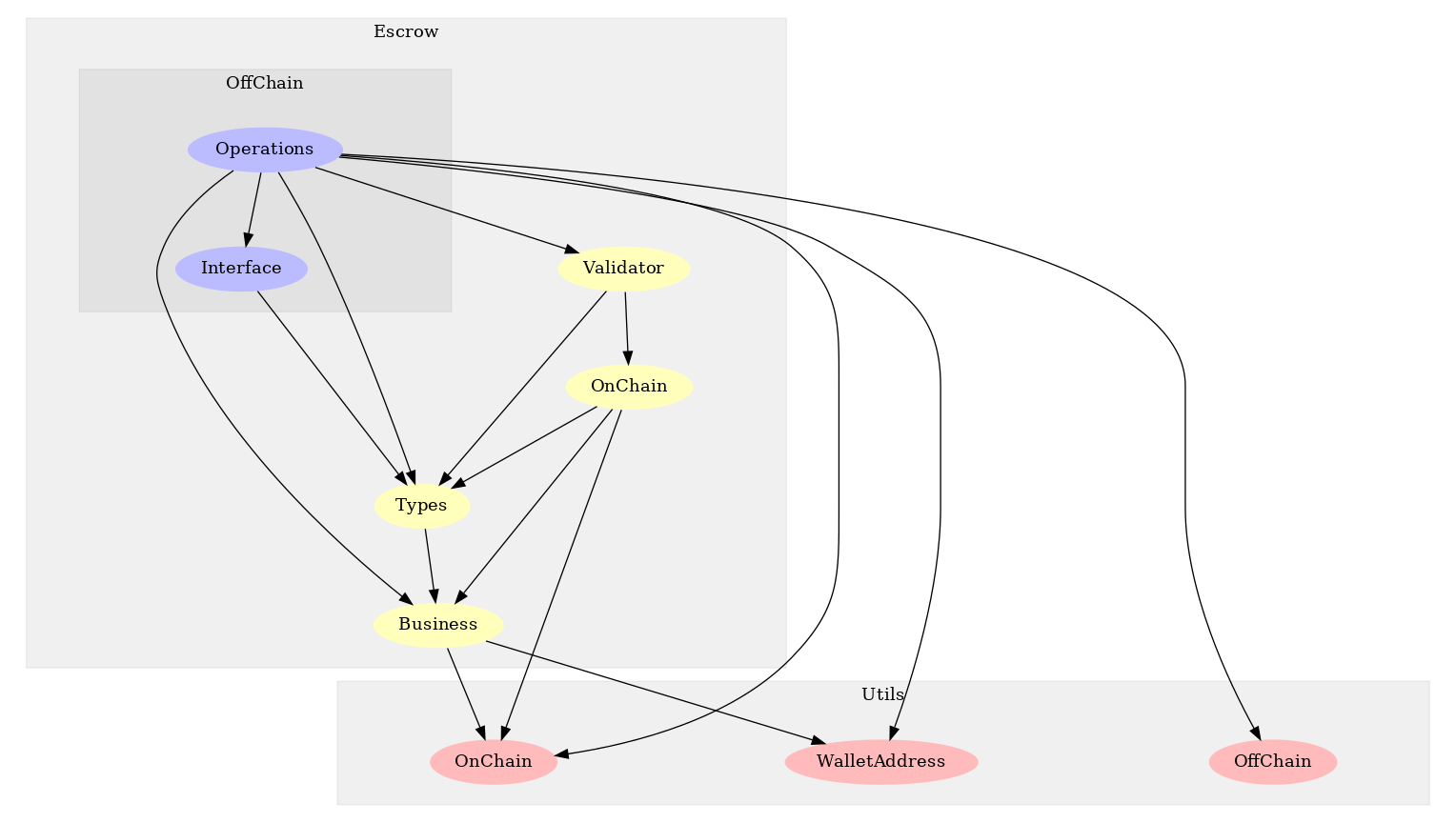1. Modules Design
The core part of a dApp implementation consists of the on-chain validators and the off-chain code in charge of building the transactions to be submitted. In this approach both on-chain and off-chain code are implemented in Haskell, allowing to share core pieces of code.
In the previous section we presented a high level description of the PAB service design. Now we go into more details, showing the actual Haskell modules. The entire service is implemented as a cabal project, composed of a library, a tests suite and other mostly boilerplate code for building the executable that will run the web server.
The following dependency graph exhibits the organization of the library:

It consists of the Escrow library itself, which contains the relevant
implementation of the dApp, and Utils, which are common for any dApp
(and will probably be released as part of a separate library soon).
The Escrow implementation is divided into three main components:
Business, OnChain and OffChain.
The first one is implemented in a single module, Business,
where we define the core logic for representing the state of the
dApp and how it is changed on each operation. The corresponding data type
representation of that state, the relevant functions for
manipulating it, and any checks that will be done both off-chain and on-chain
are located here.
Given that this module is used in the validators implementation,
the Plutus Prelude must be used instead of the standard Haskell Prelude.
The OnChain module contains the validators implementation, written
in Haskell. The Validator module contains the code for compiling from
Haskell to Plutus core, and it’s mainly boilerplate.
Inside OffChain we propose two submodules. Interface contains
the data-types corresponding to the Observable State and the Schemas,
that define the API for interacting with the client side of the dApp.
Operations contains the core off-chain code for querying the blockchain
and building the transactions. It depends on Contract Monad and Constraints
Library.
Finally, in the Types module we define the types corresponding to
the validators Parameter, Datum and Redeemer.
Regarding Utils, we have OnChain and OffChain
utilities, together with WalletAddress, which contains a simplified
version of the Ledger type Address.